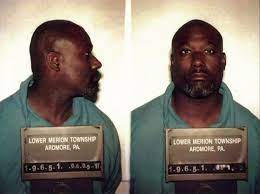Is Arthur Bomar still alive? Years have passed since Bomar’s sentencing, igniting a blend of curiosity and concern over his fate within the carceral system. We aim to uncover the current status of Bomar, offering a concise yet informative perspective on his whereabouts and the enduring impact of his actions.
Is Arthur Bomar Still Alive? The Answer
No, Arthur Bomar has passed away. Bomar, who had been on death row following his conviction, died in prison. His case had drawn significant attention, not only for the brutal nature of the crime but also for the broader discussions it sparked about the death penalty, the criminal justice system, and the mechanisms of appeal and incarceration in the United States.
Bomar’s death marks the end of a notorious chapter in criminal history, closing the book on a saga that has lingered in the public consciousness for decades. There were several hoaxes about whether or not Arthur Bomar is dead, but they were all fake.

Arthur Bomar’s Health Status
Arthur Bomar is dead. He faced various legal issues throughout his life, which ultimately led to his imprisonment and eventual death. There were no specific illnesses discussed about Arthur Bomar.
Who is Arthur Bomar?
Arthur Bomar was a convicted murderer, whose criminal activities came to a notorious climax with the 1996 murder of Aimee Willard, a college athlete from George Mason University. Bomar’s criminal record, however, extended beyond this heinous act, encompassing a history of violence and prior convictions. His arrest and subsequent trial for Willard’s murder brought to light his troubling past, including a previous murder conviction in Nevada before he was paroled and eventually moved to Pennsylvania. The case against Bomar was built on a combination of physical evidence, including DNA, and the pattern of violence that had followed him across states, ultimately leading to his conviction for Willard’s murder.
Bomar’s life and criminal career have been subjects of significant media coverage and public interest, partly due to the brutal nature of his crimes and the questions they raise about parole and the criminal justice system’s ability to prevent repeat offenses by known violent offenders. Following his conviction for the murder of Aimee Willard, Bomar was sentenced to death. He remained on death row in Pennsylvania until his death in prison, marking the end of a life that had left a trail of devastation and sorrow. His case continues to be referenced in discussions about capital punishment, recidivism, and the effectiveness of the parole system in the United States.
Did Arthur Bomar have any known accomplices?
There is no evidence of Arthur Bomar having any known accomplices, and he was the only individual convicted in relation to the murder of Aimee Willard.

How was Arthur Bomar caught and convicted?
Arthur Bomar was apprehended and convicted through a combination of diligent police work, forensic evidence, and the use of modern technology that was available at the time. Following the discovery of Aimee Willard’s body in 1996, law enforcement agencies embarked on an extensive investigation that would eventually lead them to Bomar. One of the key pieces of evidence that connected Bomar to the murder was the discovery of Willard’s car, which had been abandoned and was found with a fingerprint that matched Bomar’s, placing him at a crucial scene related to the crime. Additionally, eyewitness accounts and Bomar’s own movements around the time of Willard’s disappearance began to paint a suspicious picture that focused the investigation on him.
Forensic evidence played a pivotal role in securing Bomar’s conviction. Advances in DNA technology allowed investigators to link physical evidence from the crime scene to Bomar, making a compelling case against him in court. The combination of DNA evidence, Bomar’s criminal history, and the pattern of violence associated with him, built a strong prosecutorial case.
Despite his defense’s attempts to counter the charges, the overwhelming evidence led to Bomar’s conviction for the murder of Aimee Willard. He was sentenced to death, reflecting the severity of his crime and the impact it had on the community and the Willard family. Bomar’s conviction underscored the importance of forensic science in solving crimes and brought a measure of closure to a case that had captured the public’s attention.

What was Arthur Bomar’s motive?
Arthur Bomar’s motive for the murder of Aimee Willard, as determined by the prosecution during his trial, was sexual assault.
The brutality of the murder and the evidence collected suggested a deeply rooted propensity for violence. Bomar’s criminal history, including a prior conviction for murder in Nevada before moving to Pennsylvania and eventually killing Willard, indicates a pattern of behavior that points to deeper psychological issues. Investigators and psychologists might infer that Bomar’s actions were driven by a complex mix of aggression, control issues, and possibly sexual domination.
Final Words
In conclusion, Arthur Bomar is no longer alive. His criminal actions and subsequent conviction are a tragic part of the history of the murder of Aimee Willard. Despite the passage of time, the memory of Aimee Willard lives on, and her legacy has been honored through the “Aimee’s Law” that was passed by the US Congress in 2000. This law aims to hold states accountable for allowing criminals like Bomar to remain free and take action against such injustices.

